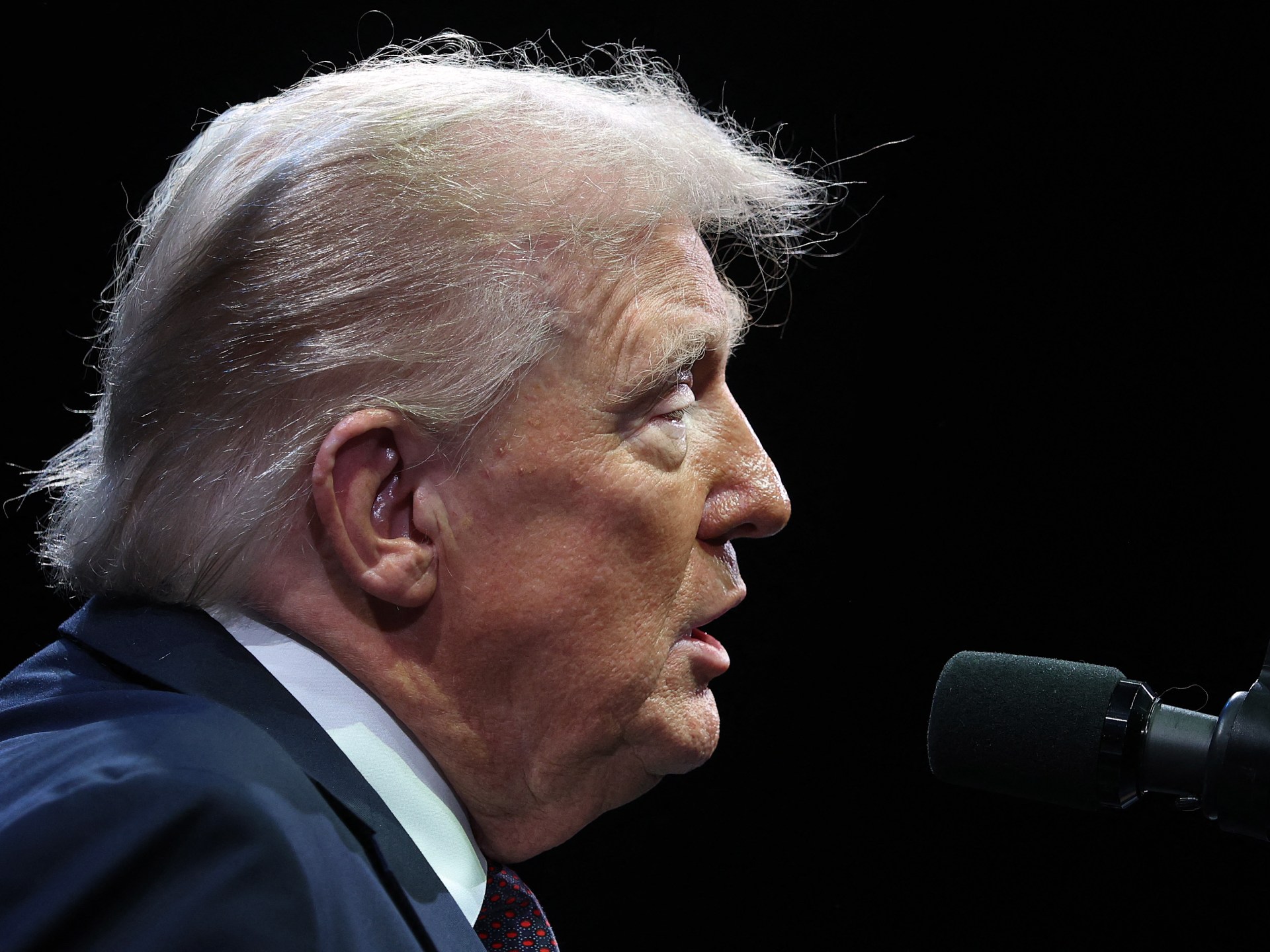The United States Supreme Court has granted an unusually quick hearing on whether President Donald Trump has the power to impose sweeping tariffs under federal law.
The justices said on Tuesday that they will hear arguments in November, which is lightning fast by the typical standards of the nation’s highest court.
Recommended Stories
list of 4 itemsend of list
The small businesses and states that challenged the tariffs in court also agreed to the accelerated timetable. They say Trump illegally used emergency powers to set import taxes on goods from almost every country in the world, nearly driving their businesses to bankruptcy.
The justices also agreed to hear a separate challenge to Trump’s tariffs brought by a family-owned toy company, Learning Resources.
Two lower courts have found that most of the tariffs were illegally imposed, though a 7-4 appeals court has left them in place for now.
The levies are part of a trade war instigated by Trump since he returned to the presidency in January, which has alienated trading partners, increased volatility in financial markets and driven global economic uncertainty.
Trump has made tariffs a key foreign policy tool, using them to renegotiate trade deals, extract concessions and exert political pressure on countries. Revenue from tariffs totalled $159bn by late August, more than double what it was at the same point a year earlier.
The Trump administration asked the justices to intervene quickly, arguing the law gives him the power to regulate imports and that the country would be on “the brink of economic catastrophe” if the president were barred from exercising unilateral tariff authority.
The case will come before a court that has been reluctant to check Trump’s extraordinary flex of executive power. One big question is whether the justices’ own expansive view of presidential authority allows for Trump’s tariffs without the explicit approval of Congress, which the US Constitution endows with the power to levy tariffs.
Three of the justices on the conservative-majority court were nominated by Trump in his first term.
Impact on trade negotiations
US Solicitor General D John Sauer has argued that the lower court rulings are already impacting those trade negotiations. Treasury might take a hit by having to refund some of the import taxes it has collected, Trump administration officials have said. A ruling against the tariffs could even hamper the nation’s ability to reduce the flow of fentanyl and efforts to end Russia’s war against Ukraine, Sauer argued.
The administration did win over four appeals court judges who found the 1977 International Emergency Economic Powers Act, or IEEPA, lets the president regulate importation during emergencies without explicit limitations. In recent decades, Congress has ceded some tariff authority to the president, and Trump has made the most of the power vacuum.
The case involves two sets of import taxes, both of which Trump justified by declaring a national emergency: the tariffs first announced in April and the ones from February on imports from Canada, China and Mexico.
It does not include his levies on foreign steel, aluminium and autos, or the tariffs Trump imposed on China in his first term that were kept by former President Joe Biden, a Democrat.
Source: Aljazeera

Leave a Reply